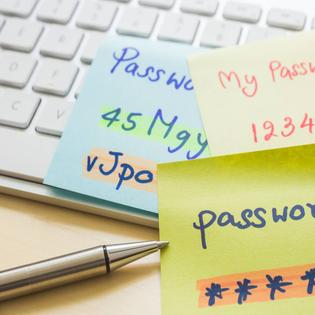Advertiser Disclosure
All About Cookies is an independent, advertising-supported website. Some of the offers that appear on this site are from third-party advertisers from which All About Cookies receives compensation. This compensation may impact how and where products appear on this site (including, for example, the order in which they appear).
All About Cookies does not include all financial or credit offers that might be available to consumers nor do we include all companies or all available products. Information is accurate as of the publishing date and has not been provided or endorsed by the advertiser.
Editorial Policy
The All About Cookies editorial team strives to provide accurate, in-depth information and reviews to help you, our reader, make online privacy decisions with confidence. Here's what you can expect from us:
- All About Cookies makes money when you click the links on our site to some of the products and offers that we mention. These partnerships do not influence our opinions or recommendations. Read more about how we make money.
- Partners are not able to review or request changes to our content except for compliance reasons.
- We aim to make sure everything on our site is up-to-date and accurate as of the publishing date, but we cannot guarantee we haven't missed something. It's your responsibility to double-check all information before making any decision. If you spot something that looks wrong, please let us know.
Do you feel secure shopping online with Walmart and Walmart Marketplace? Most people don't think twice about shopping at the world’s largest retailer and one of the most valuable brands across the globe. No matter which e-commerce site you frequent, large or small, online scammers will use any opportunity available to attempt to steal your financial information or your identity.
How do you keep safe as technology changes? By keeping yourself informed. We have detailed some of 2023’s most common Walmart scams that occur on Walmart.com and Walmart’s Marketplace so you can stay aware of them and tips for avoiding these scams like verifying the websites you visit and email addresses you contact, investing in the best antivirus, avoiding pop-up ads, and more.
6 common Walmart scams
Tips to avoid Walmart scams
What to do if you’ve been scammed
Walmart scams FAQ
Bottom line
Is Walmart safe?
Yes. We believe Walmart is one of the safest online retailers, and it has a responsibility to keep you safe when shopping online at Walmart.com or Walmart Marketplace, its third-party retailer site.
To do this, Walmart has dedicated phone numbers and email addresses where you can report potential and actual fraudulent activity. Furthermore, the Walmart official site has a webpage dedicated to fraud alerts to keep you aware of any new scams that either have been or could be attempted with Walmart customers.
6 common Walmart scams
What do the pandemic, gift cards, and money transfers have in common? You guessed it: They’re all Walmart scams. Cybercriminals will use emotions, technology, and opportunity to line their pockets with your money. Keep reading below on how criminals attempt various Walmart scams.
1. Walmart pandemic relief scam
Fraudsters don’t hesitate to take advantage of people during frantic times, and this has been the case during the recent coronavirus pandemic. Cybercriminals may ask you to complete a form or send them a deposit to receive pandemic relief payments. The scammers claim that this monetary award will come from the Walmart Foundation or Walmart.org. Both are legitimate organizations that are falsely named in this type of scam.
Make sure to look up each organization online, call, or visit in person before accepting assistance or providing personal information.
Neither the vaccine nor the stimulus check require advance payments. Walmart offers free COVID-19 vaccinations at this time.
2. Walmart gift card scam
Have you checked your Walmart gift card balance and were suddenly redirected to a different website? Have you seen offerings for free Walmart gift cards on other websites? These are just a few ways in which gift cards are used to scam people like you.
Here is a list of how gift cards may be used fraudulently by cybercriminals:
- A scammer may ask you to use your Walmart gift card for their “product” or “service,” knowing that they will simply take your gift card information and use it for themselves.
- You could encounter a spoofed website, which is a false website set up to steal your payment details when you try to check your Walmart gift card balance.
- A website could offer free Walmart gift cards if you respond or click on an online ad. Some websites are set up solely for phishing your personal data or to install malware on your computer.
To avoid the Walmart gift card scam, only use your gift card at Walmart stores or Walmart.com. Avoid checking your Walmart gift card balance anywhere but the official Walmart website. Furthermore, stay away from websites that offer free Walmart gift cards in exchange for you performing some type of task for a “company”.
3. Walmart survey scam
Did you know that you can take a Walmart survey up to one week after your shopping visit and be entered into their quarterly gift card sweepstakes? Scammers are aware of these ongoing sweepstakes as well. They would like nothing more than to obtain your personal details like passwords, bank account numbers, credit card numbers, and your Social Security number to commit identity theft.
While Walmart may ask you to verify your address or phone number if you win the sweepstakes, they will never make calls or send emails asking for your social security number or financial details.
Moreover, always double-check the website you are visiting before submitting your Walmart survey and any sensitive information, as survey.walmart.com is the official site to enter your feedback. If you are concerned about whether or not an email survey is from Walmart, do not click on it or respond to it. You can contact their team at inapprop@walmart.com to further investigate the communication and verify that it is an authorized Walmart email.
A password manager like NordPass is an easy way to enhance your online security. Your passwords, profiles, and credit cards are all protected with XChaCha20 encryption.
-
Strong encryption and security
-
User-friendly interface
-
Free version is limited to one device at a time
4. Walmart online order scam
With the Walmart order tracking scam, you may receive an order confirmation from a fake company that wants you to click on their phishing links and download malware. It’s likely an email scam if:
- Filled with poor grammar or spelling errors
- Missing a Walmart order tracking number or shipping notes
- Sent from a domain that isn’t Walmart’s
If you receive this type of email, do not reply to it or click on any links. You can log in to your account on the Walmart official site to check your recent order status or contact Walmart support.
- Norton: Norton is a great antivirus solution for beginners thanks to its clean layout and extensive guides for installation and use. It also offers excellent malware detection and real-time defense against malicious code.
Get Norton 360 | Read Our Norton 360 Review - McAfee: McAfee is one of the long-running security products for good reason: it works. It earned high scores during third-party tests, and it comes with bonus features like a virtual private network (VPN), parental controls, web protection, and more.
Get McAfee | Read Our McAfee Review - TotalAV: TotalAV is budget-friendly, user-friendly, and it comes with antivirus essentials like malware scanning, phishing protection, real-time protection, and more. It also earned near-perfect test scores in third-party tests run by AV-TEST, so you know you'll be investing in a product that works.
Get TotalAV | Read Our TotalAV Review
5. Walmart money transfer scams
Walmart offers many safe and valid money transfer services under the Walmart2Walmart brand. But money transfers and money orders are difficult to reverse. They work like cash, and Walmart can’t help you retrieve money sent to fraudsters.
Scammers may ask you to send money transfers under the guise of buying fake products, donating to fake charities, or helping a family member in dire need.
While the Walmart2Walmart money transfers are legitimate services, you’ll want to proceed with caution while performing a money transfer. Here are a few helpful tips:
- Never transfer money to strangers. Money transfers are the equivalent of giving them cash.
- Do not send money to merchants, charities, government organizations, or to buy high-value items. Money transfers are safer if you use them solely for transferring money to other people.
- Double-check with your loved one that they are the individual who contacted you and are in need of your money transfer.
- Keep your transaction reference number private from anyone who is not the intended recipient of the funds.
6. Walmart impersonation scams
A name like Walmart has immediate name recognition because they are located in 24 countries throughout the world. Cybercriminals rely on big-box retailer name recognition to try to scam you out of your personally identifiable information.
One way they do this is by sending you an email or text stating that you have won something. You will be asked to click on a link for more information, but most likely, you will encounter a phishing website or malware instead.
Whether it is a phone call, email, or text message, you should always ask yourself why a global brand would be contacting you when you have not reached out to them. This is a red flag. And, remember — criminals need you more than you need them.
Tips to avoid Walmart scams
To avoid being scammed on Walmart’s official site or Walmart’s Marketplace, here are some general precautions.
- Always double-check the website you are visiting for accuracy. If you notice typos or grammatical errors on the address bar or web page, you could be on a fraudulent website impersonating Walmart’s official site.
- Double verify email sender addresses before clicking on links within a Walmart email.
- If an order confirmation looks untimely, contact Walmart directly to confirm your order details.
- Only check your Walmart gift card balance and use your Walmart gift card at the Walmart official site.
- Avoid clicking on sites offering free gift cards.
- Properly research a charity online or in person before donating.
- Stay away from using money transfers for big-ticket items or products versus simply transferring money to the intended recipient.
- Pay attention to your browser’s security warnings for malicious sites or malicious web files.
- Type in the URL of the trusted website into your browser versus clicking on links.
- Avoid clicking pop-up ads.
- Never give out your personal information to someone who calls, texts, or emails you before you have verified this person’s identity through the organization.
What to do if you’ve been scammed
If you have been scammed, do not panic. There are actions you can take right away. First, take care of any immediate privacy breach by changing your online password and contacting your credit card issuer to report fraudulent activity. The Federal Trade Commission (FTC) provides a list of steps you can take to quickly cut off the scammers from enacting further damage.
Next, you may need to report the scam to your local law enforcement before alerting the proper governmental authorities like the FTC or IC3. You can also reach out to Walmart and their partners directly if you would like to retrieve helpful next steps on how to recover your funds or protect your Walmart account.
How to contact Walmart after a scam
Here are the multiple ways to reach out to Walmart if you have been a victim or potential victim of a Walmart scam:
- If you have been the victim of a Walmart gift card scam, you can report it to 888-537-5503.
- If you suspect that you have received a suspicious email falsely stating they are with Walmart, you can send the email as an attachment to OnlineAbuse@Walmart.com for further investigation.
- If you believe you were redirected to a fraudulent website, send an email with the website link to abuse@Walmart.com for further inquiry.
- If you received a fraudulent email or have been a victim of money transfer fraud, you can report it to MoneyGram directly online or call 1-800-MONEYGRAM.
- If you believe your account for Walmart’s official site was compromised, you can change your password online.
Walmart scams FAQ
Is Walmart Marketplace different from Walmart?
Yes. Walmart Marketplace is different from standard shopping on Walmart’s official site. Walmart Marketplace is a shopping website that gives third-party sellers the chance to sell their products on Walmart.com. Millions of products are available to customers in many categories like home goods, electronics, sports, and more. The Marketplace gives sellers a wider reach to potential customers while also offering promotional ads and Walmart’s own supply chain services to vendors.
Is it safe to buy from Walmart third-party sellers?
Yes, it is safe to buy from Walmart’s third-party sellers, as they undergo a strict process to join Walmart Marketplace. Unfortunately, as with any online retailer, fraudulent actors may slip through and try to scam you out of your money.
Is it safe to send money through Walmart?
Sending money through one of Walmart’s financial intermediaries is safe as long as you are safe about it. As long as you know the individual to whom you are sending the money, keep the confirmation number to yourself, and are not paying for any physical goods with the transaction, you are making informed and safe decisions.
Bottom line
Walmart cares about your safety. In 2022 alone, Walmart’s Global Investigations team intercepted $4 million worth of gift card scams that targeted senior citizens.[1] Additionally, the company has dedicated phone numbers and Walmart.com email addresses for customers concerned about Walmart scams, along with a fraud website that has a robust list of fraud prevention resources.
It is important that you protect yourself from cyberscams so you don't fall victim to identity theft. We've compiled a list of the best identity theft protection so you can protect your personal information and your peace of mind.
-
Excellent identity theft protection service
-
Includes a password manager and VPN
-
Robust tools for children’s security
-
Provides VantageScore and not FICO score updates






